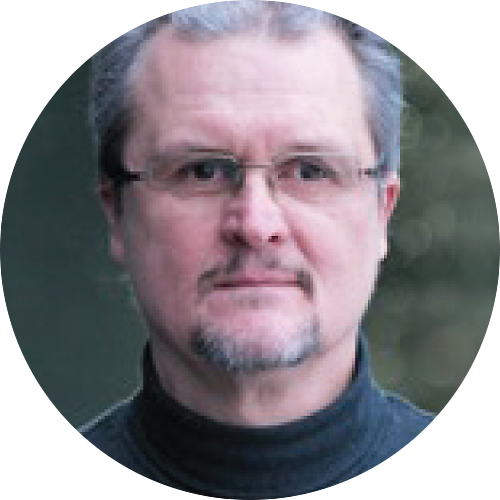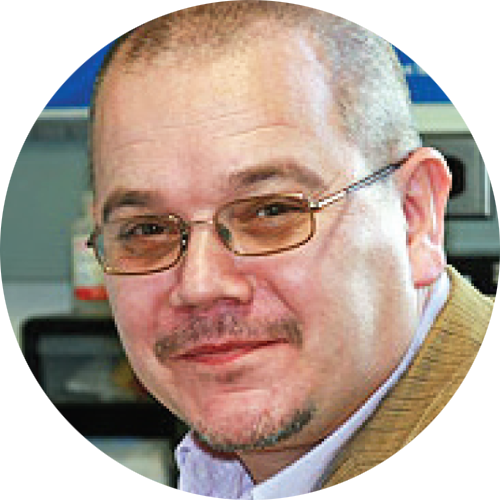
Q: WHat is tHe focuS of your lab’S reSearcH?
A: The group has comprehensive experiences for undertaking radiotracer experiments, different spectroscopic techniques, characterization of colloid-chemical properties and in vitro/in vivo studies in view of the development and characterization of novel radiotracers, including functionalized nanoparticles. The design and development of chemically, metabolically and radiolytically stable radiometal complexes on the basis of 64Cu/67Cu is of special interest. Furthermore, polynuclear metal compounds (polyoxometalates, Re clusters) for anti-tumor activity, photosensitizing, and radiation-sensitizing properties are under investigation. The characterization of binding and transport behavior of novel receptors by solvent extraction studies represents one main topic.
Q: WHAT PREVIOUS WORKFLOW CHALLENGES DID YOU EXPERIENCE?
A: The development of new bifunctional chelating agents and relevant target-seeking bio-conjugates requires novel synthetic strategies and the improvement of known pathways as well. For the successful achievement of this goal, ‘real-time’ characterization of main and side-products is of particular importance.
Q: WHY DID YOU INCORPORATE THE EXPRESSION CMS INTO YOUR LABORATORY?
A: The Advion expression compact mass spectrometer rapidly provides reliable mass data in a stand-alone modus and coupled to UPLC/HPLC systems, respectively. Sample handling and measurement are straightforward. PhD students appreciate both the ‘in-time’ information about success and failure in developing novel compounds. I recommend to all groups requiring immediate access to reliable mass data for the characterization of novel compounds.

Q: What is the focus of your lab’s research?
A: The mass spectrometry facility here at Boston College’s main focus is as a core lab, open to all users, both undergraduate and graduate students alike.
Our main research interests include the application of mass spectrometry as a routine tool for chemistry/chemical biology; exploring new research applications for mass spectrometry; and the use of open-air ionization methods for the analysis of pharmaceutical, biological, drug and chemical analysis.
Q: What was your previous work flow or challenges?
A: As a core lab we have a large number of samples being run and there is a constant need to change ionization sources.
Q: Why did you incorporate the expression® CMS into your laboratory?
A: The expression® has allowed us to take the workload of the other more expensive instruments by incorporating it as an open access instrument. With minimal training, the students are able to run their own samples, as not to slow down their research.
Due to the instrument size and speed at which it pumps down, we are able to move the instrument directly to the classroom for students to use.

Q: What is the focus of your lab’s research?
A: Our laboratory is primarily a teaching laboratory for undergraduate and graduate students to gain exposure to current chemistry technology. Several techniques are practiced for medicinal chemistry and synthetic organic chemistry applications including TLC, reaction monitoring, and UV-vis.
Q: Why did you incorporate the expression cMs into your laboratory?
A: As a small university, we face unique challenges of limited resources in both space and funding. Mass spectrometers are a powerful detector, and it is important that our students gain exposure to this analytical technique; however, purchasing one was out of our reach. The expression CMS has allowed us to not only bring this commonly used technology to the hands of our students, but also has resulted in faster data. Our students no longer have to wait up to a month for results from an outsourced partner. They know right away whether what they set to accomplish was successful.
Q: Who Would you recoMMend to purchase the expression cMs?
A: I recommend the expression CMS to all teaching labs that wish to expose their students to this technology in a fast and easy-to-use platform.



